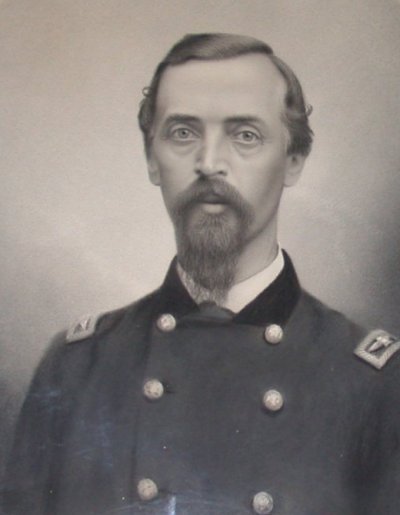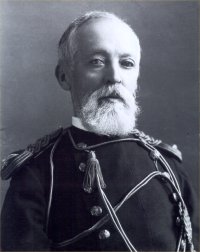
10th New York State Volunteers - Heavy Artillery - Civil War 1862 to 1865
Painted by Theodore Gegoux (1850-1931). Completed at Watertown , New York
Measuring 20 inches by 16 inches, dated 1897, signed T. Gegoux.
Photo Courtesy of Jefferson County Historical Society © - All rights reserved.
"Remember me most kindly to any of the Tenth you may meet with assurances they hold a warm place in my rememberance and regard, and hope to see them some day when I can say to them more than I can express to you now."
Col. Alexander Piper - In the spring of 1885 at his Headquarters in San Francisco.
From the reminiscences of Col. W. B. Camp - as published in the History of the 10th Regiment, New York Heavy Artillery (E.P. Webb - 1887), and reprinted in the Genealogical Journal of Jefferson County, New York (1993 - 1994) - Copyright © All Rights Reserved.
